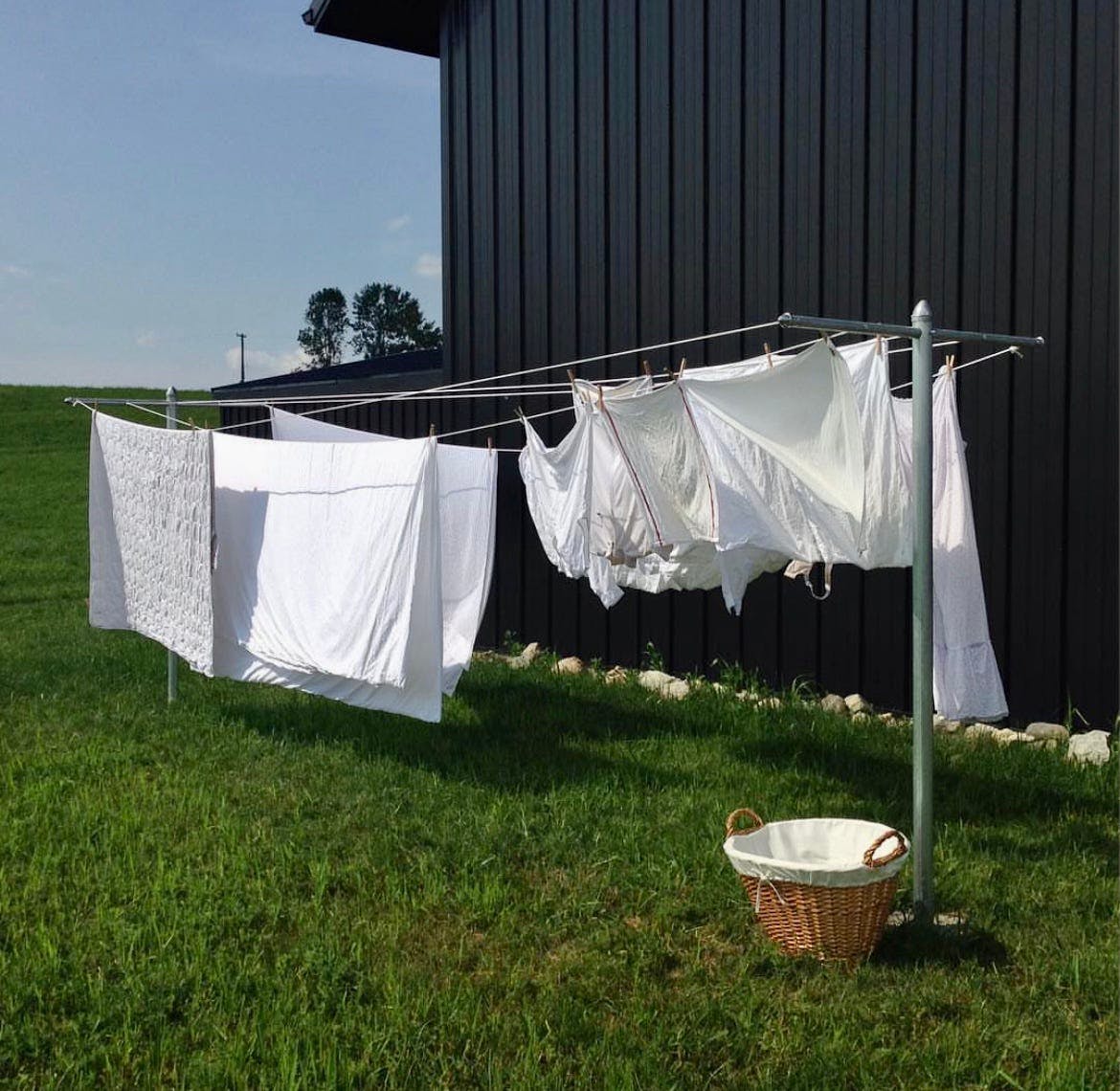We’re in the fat part of clothesline season in much of the U.S., when most of us can easily air-dry our laundry. Not everyone has a line out back, but pretty much anyone can find something to drape their linens over. Got a window? You can do this.
Clotheslines are not, of course, some exotic technology that we’ve never seen before, but it’s worth ensuring that we’re all getting the most out of ours. Because air-drying clothes is an easy, cheap environmental win. Clothes dryers are a top five household energy-snorter (after your HVAC, hot water, and fridge). Leaving that hog switched off will keep literal tons of carbon out of the atmosphere.

Here’s how much:
Let’s say you own a typical, efficient electric dryer. According to Energy Star, this one’s average cycle time is 72 minutes, during which it consumes around 2.14 kilowatts of electricity. (I’ll spare you my mathematical journey, but it turns out that an efficient gas dryer has almost the same emissions.)
If you use the national average for emissions per kilowatt-hour, that cycle creates 0.83 kilograms of greenhouse gasses—even more if you live in a state with a dirty grid, Mr. Manchin. So if you can line-dry one load per week, you’ll keep an easy 43 kilograms of planet-warming gas out of our air every year. If you already use the solar dryer, take advantage of the warm weather and double up! Free-range sheets and towels are the best.

Sure, 43 kg of greenhouse gasses isn’t a ton (sorry, eco-dad joke), but these savings scale quickly. If 1 percent of the U.S.’s 124 million households line-dries an average of one load per week, that’s more than 5 million metric tons of greenhouse gasses we’re not producing. It’s equivalent to taking nearly 1.2 million cars off the road for a year.
If 10 percent of U.S. households play along…well, you can multiply by 10: 12 million cars. If we all line-dry one extra load of laundry per week, that’s like taking out 40 percent of the American automotive fleet. And the sheets! The feel so good!
Is line-drying our clothes going to be the climate action that pulls us back from environmental catastrophe? No, but making a habit of small changes is how we put ourselves in a mindset of conservation over waste. Today it’s the sheets; tomorrow it’s dinner. Faced with choices down the road, you’ll find heat pumps and EVs and mass transit guiding your decisions to an extent where, yes, you are actually making a dent—without agonizing over or even thinking about it.
So take the easy win, and celebrate the road to victory.
Take care of yourselves—and the rest of us, too.
Joe
joe@one5c.com

